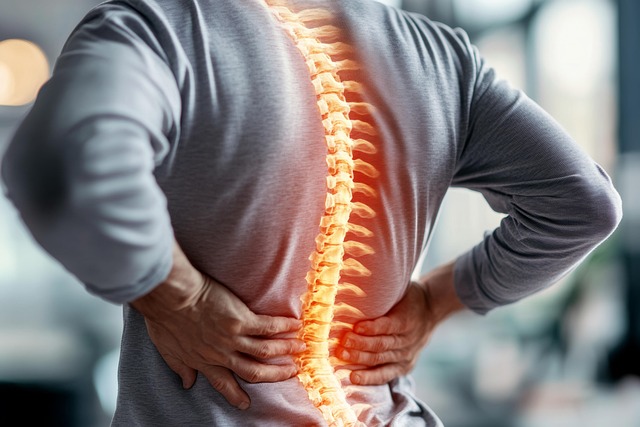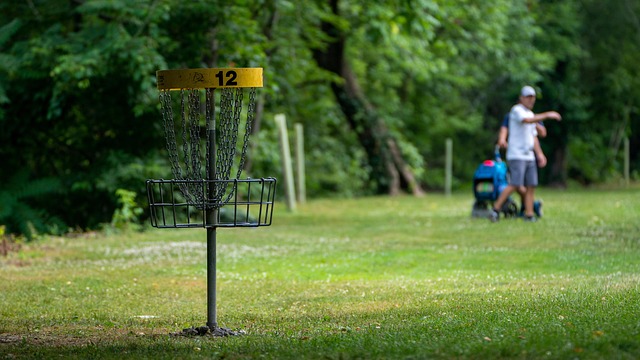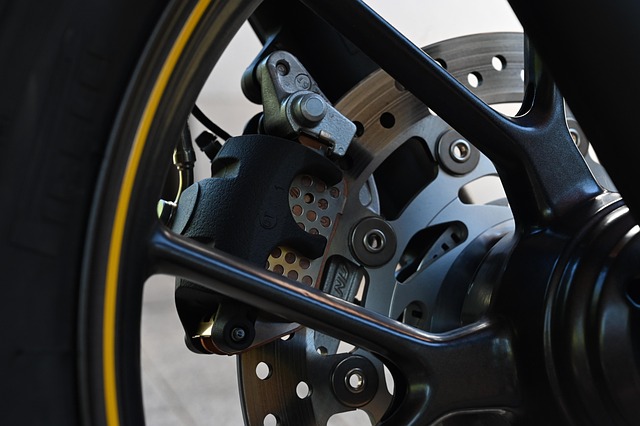Post-car crash herniated discs cause back/neck pain, numbness, weakness. Initial pain may subside but masks nerve issues needing chiropractic management. Chiropractors use manual adjustments, imaging, and tests for diagnosis, then offer non-invasive treatments like spinal manipulation, exercises, heat/ice therapy to relieve pressure, promote healing, restore mobility, and prevent long-term complications.
After a car crash, back pain and disc injuries are common concerns. A comprehensive chiropractic exam can provide crucial insights into these post-accident conditions. This article explores understanding post-accident disc injuries, focusing on how chiropractors assess and manage herniated discs following a car crash. Delving into assessment techniques and effective management strategies, it offers valuable guidance for those seeking natural recovery options for these painful conditions.
- Understanding Post-Accident Disc Injuries
- Chiropractic Exam: Assessment Techniques
- Chiropractic Management Strategies for Herniated Discs
Understanding Post-Accident Disc Injuries

Post-accident disc injuries, particularly herniated discs, are a common occurrence in car crashes and other traumatic events. The sudden impact can cause damage to the soft, gel-like material inside your vertebrae, leading to pain, numbness, or weakness in the back, neck, or limbs. Recognizing the signs of these injuries is crucial for proper chiropractic management. Many victims may initially experience intense pain that subsides with rest, but it’s important to remember that this doesn’t always indicate healing. A herniated disc could be pressing on nearby nerves, causing symptoms to disappear temporarily, only to return or worsen later if left untreated.
Chiropractic care plays a vital role in managing post-car crash disc injuries. Chiropractors use various techniques such as spinal manipulation and adjustment to alleviate pressure off affected nerves, promote healing, and restore range of motion. They also incorporate other therapies like heat/ice therapy, electrical stimulation, and exercise rehabilitation to address pain and strengthen supporting muscles. Early intervention is key in preventing long-term complications, so if you’ve been in an accident, don’t hesitate to consult a chiropractor for an accurate diagnosis and tailored treatment plan.
Chiropractic Exam: Assessment Techniques

Chiropractic exams for individuals with post-accident disc injuries involve a comprehensive assessment to determine the extent and nature of the damage. Chiropractors employ various techniques to evaluate the spine, nervous system, and surrounding soft tissues. This may include manual palpatation, where the chiropractor gently presses and feels the spine to identify areas of tenderness or misalignment, known as vertebral subluxations.
They also utilize imaging tools such as X-rays and MRI scans to visualize the discs and vertebrae, helping in diagnosing herniated or bulging discs. The chiropractor may further assess range of motion, muscle strength, and reflexes, along with gathering a detailed patient history to understand the mechanisms of injury during the post-car crash incident. These techniques form the backbone of chiropractic management for disc injuries, guiding the treatment plan tailored to each patient’s unique needs.
Chiropractic Management Strategies for Herniated Discs

Chiropractors employ various non-invasive management strategies for individuals with herniated discs resulting from post-car crashes. These methods focus on alleviating pain, promoting healing, and restoring function. Common chiropractic techniques include manual adjustments to the spine, targeted exercises, and therapeutic modalities such as heat and ice therapy.
In the aftermath of a car accident, chiropractic care can play a pivotal role in managing herniated discs by reducing inflammation, improving spinal alignment, and supporting the body’s natural healing processes. Chiropractors tailor treatment plans to individual needs, combining hands-on care with patient education to empower individuals in their recovery journey following disc injuries sustained in accidents.
Post-accident disc injuries, particularly herniated discs, can significantly impact an individual’s quality of life. A comprehensive chiropractic exam plays a pivotal role in diagnosing and developing effective treatment plans for these conditions. By utilizing advanced assessment techniques, chiropractors can identify the root causes of pain and implement tailored management strategies, such as manual adjustments, rehabilitation exercises, and lifestyle modifications. In the context of post-car crash injuries, chiropractic management focuses on reducing discomfort, restoring mobility, and preventing long-term complications, ultimately empowering individuals to regain control over their well-being.














